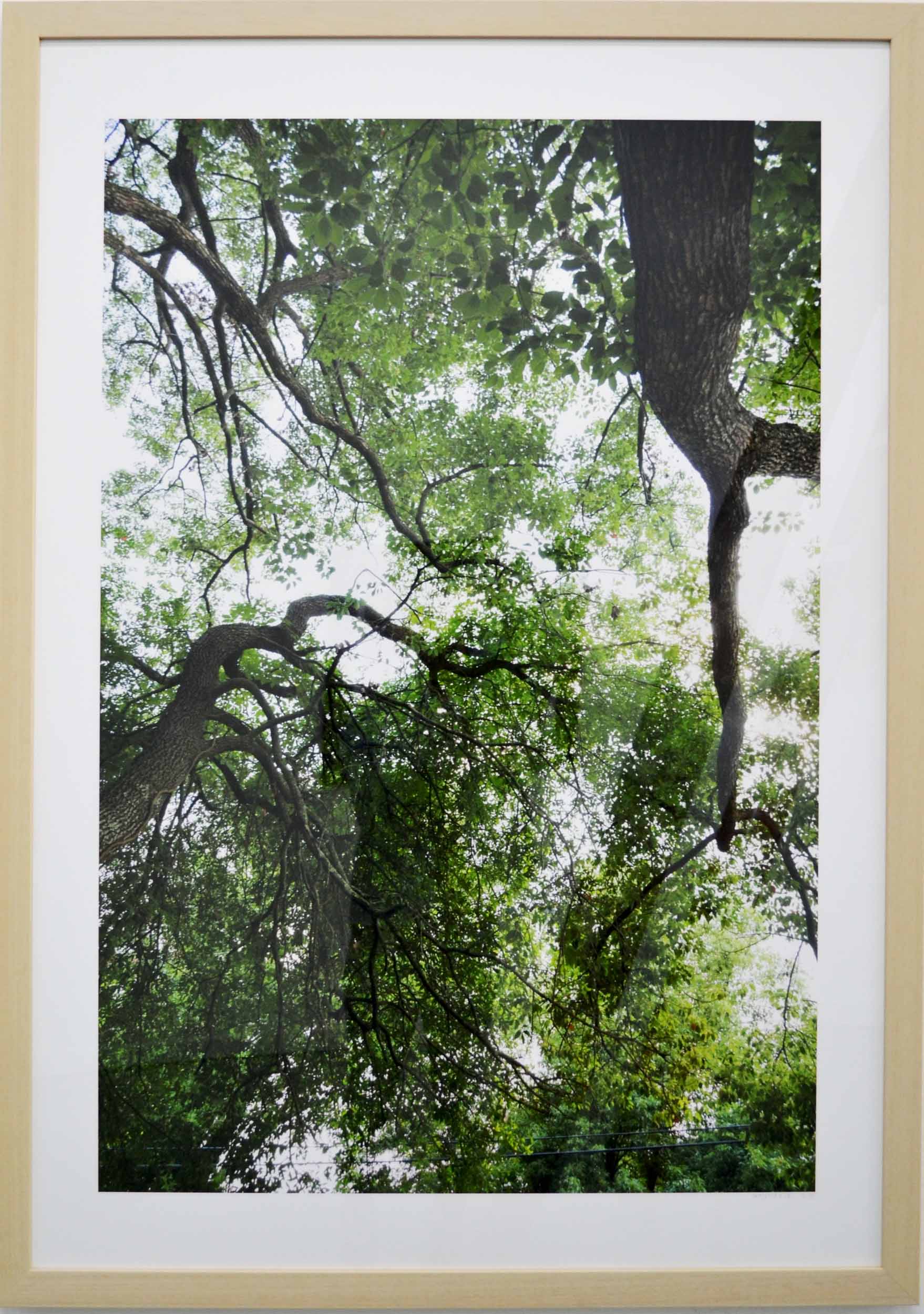Relevance, 35th Anniversary Exhibition II
From the series Under This Sky
On March 21, 1981, Michael Donald was abducted by two Klansmen, who beat him, dragged him with a rope around his neck and slit his throat. They brought his lifeless body back to the home of the leader of the United Klans of America on Herndon Street in Mobile, Alabama. Before daylight they strung Michael Donald’s body from a branch across the street.
With the help of Morris Dees of the Southern Poverty Law Center, Michael Donald’s mother Buelah Mae Donald, successfully sued the Klan and was awarded a seven-million-dollar judgement. The Klan’s property in Tuscaloosa was sold and wages were garnished which went to Beula Mae. Although it was a mere fraction of the amount awarded, the judgement bankrupted the Klan and made it impossible for them to operate in any manner that used collateral because all future assets would go to the settlement. Morris Dees, of the Southern Poverty Law Center, said that it was a “verdict that marked the end of United Klans”.
I went to the site of this brutal lynching to stand in the space that Michael Donald held in his last moments and in his death. I remember my father’s words from when I was a child speaking of a memory from his own childhood. He said, “They just left the body hanging there for everyone to see.”
Under This Sky (2018 – ) is a series of photographs taken looking up towards the sky at lynching sites in the Southern United States, sharing the space each victim held in their last moments. As with earlier projects Dazzling, Rally, Queen on the Nile, and The Club this series explores the history, culture and politics of the American South and how these elements leave a mark on the look of a place.
I was new to the South when I moved from New England to Birmingham in August of 1979. I observed the Klan in their hoods and white robes on multiple occasions. At the fairgrounds I saw a lone man set up at a table selling Klan paraphernalia. In Northern Alabama, I saw a Klansman carrying a rifle, robed, walking around at the Collinsville Trade Day. On a third occasion I pulled into the town of Opp and saw Klansmen in hoods and robes on either side of the road stopping cars ahead of us with tin coffee cans asking for donations.
But I experienced the Klan face to face in October of 1979. Seeing a makeshift paper sign on the side of the road announcing a Klan Rally, I pulled next to a large field on Highway 31 where the rally was in progress. A man in full robe, rifle in hand, leaned into the window of my car and told me where to park. When the sky fully darkened, I saw the cross lighting and heard the Klan members chanting as they raised and lowered their torches walking in a tremendous circle around the burning cross.
Under This Sky is in part a response to my father sharing painful childhood memories with me about a lynching that occurred near his hometown and the impact it had on him throughout his life.
To learn more about these tragic injustices, visit these institutions in person in Montgomery, Alabama or online:
National Memorial for Peace and Justice
Sonja Rieger is a Birmingham based artist and photographer. She grew up in the Northeastern United States, calling Massachusetts home. In 1979, she accepted a teaching position at the University of Alabama at Birmingham, a move that influenced the course of her artwork and the direction of her explorations. Rieger is interested in the visual traces of history, culture and politics and how they leave a mark on a people and a place.
She has exhibited widely at regional and national venues, most recently a portfolio of eighteen prints was acquired by the Centro de Arte Alcobendes in Madrid, she has exhibited at Carmen Wiedenhoeft Gallery in Denver, Colorado during Denver’s month of photography and at; the Contemporary Art Center in New Orleans, Louisiana; the Southeastern Center for Contemporary Art in Winston Salem, North Carolina; the Ogden Museum in New Orleans, Louisiana; and the National Museum for Women in the Arts in Washington, D.C. Other exhibitions of note are at the A.I.R. Gallery, White Columns and the Sherry French Gallery, in New York; at the Jones Troyer Fitzpatrick Gallery, and the Martin Gallery in Washington D.C., at the Fotogalerie Bordenau in Frankfurt, Germany; and in Hitachi, Ibaragiken Japan. Her work is in the collections of the 21st Century Museum Hotel, the International Polaroid Corporation, the Ogden Museum of Southern Art, the Birmingham Museum of Art, the Huntsville Museum of Art, and other corporate and private collections.
Recipient of two Individual Artist Grants from the Alabama State Council on the Arts, Rieger has also received grants for projects from the Polaroid Corporation, the Southern Arts Federation, and the National Endowment for the Arts. She is represented by Maus Contemporary in Birmingham, Alabama.
She is Professor Emerita after a forty-year career at the University of Alabama at Birmingham.
Space One Eleven Involvement: Exhibiting Artist: The F Words 2008, Sampler Part I 2011, Barriers 2012; Featured Artist: SOEdible 2012
